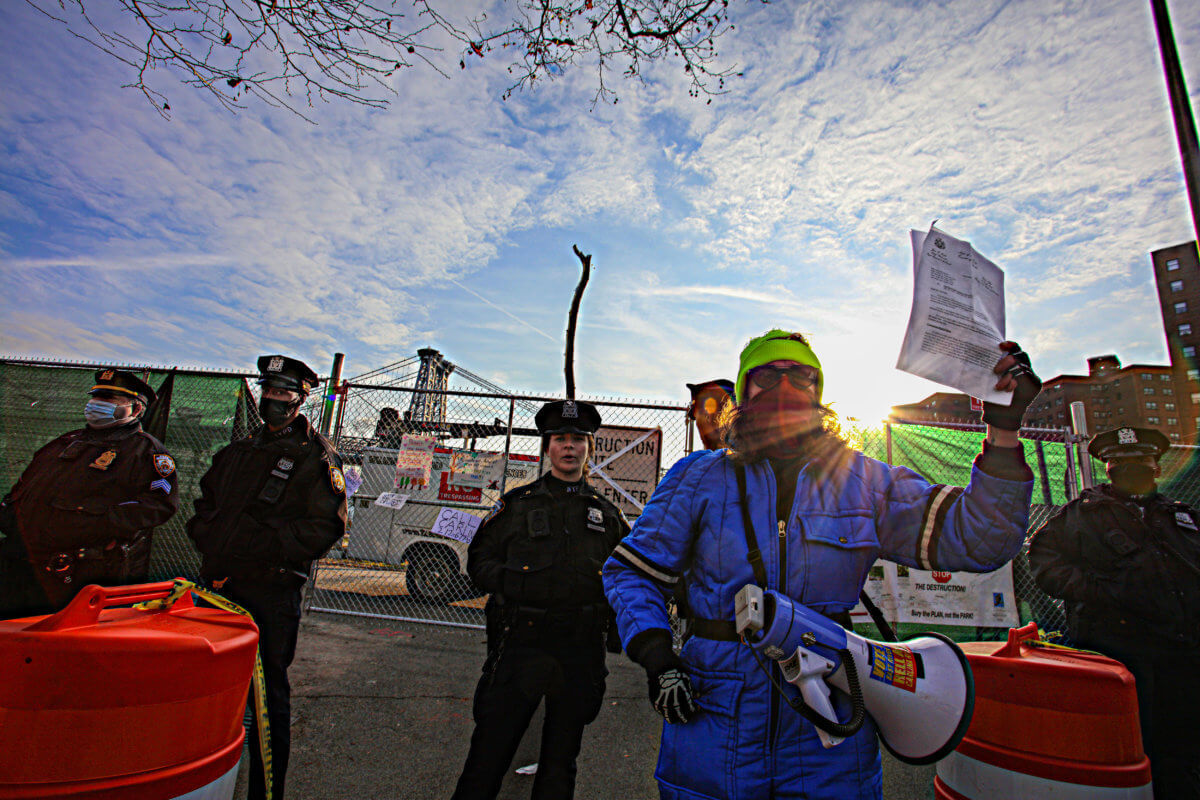pigwot
M's, Juniper's, Lowen’s, and Inge’s Grandpa
Thirty years ago yesterday ! , on December 26, 1991, the headline of the New York Times read: “Gorbachev, Last Soviet Leader, Resigns; U.S. Recognizes Republics’ Independence.” On December 25, Soviet President Mikhail Gorbachev had resigned, marking the end of the Union of Soviet Socialist Republics, the USSR.
Former Soviet republics had begun declaring their independence in March 1990, the Warsaw Pact linking the USSR’s Eastern European satellites into a defense treaty dissolved by July 1991, and by December 1991 the movement had gathered enough power that Belarus, Russia, and Ukraine joined together in a “union treaty” as their leaders announced they were creating a new Commonwealth of Independent States. When almost all the other Soviet republics announced on December 21 that they were joining the new alliance, Gorbachev could either try to hold the USSR together by force or step down. He chose to step down, handing power to the president of the Russian Federation, Boris Yeltsin.
The dissolution of the USSR meant the end of the Cold War, and those Americans who had come to define the world as a fight between the dark forces of communism and the good forces of capitalism believed their ideology had triumphed. Now 90, Gorbachev said Friday that with the collapse of the Soviet Union, "They grew arrogant and self-confident. They declared victory in the Cold War."
While Gorbachev was echoing the language of Russian President Vladimir Putin, who insists that NATO is crowding Russia by supporting Ukraine’s independence, his observation about arrogance and self-confidence hits another mark.
In fact, the collapse of the USSR gave the branch of the Republican Party that wanted to destroy the New Deal confidence that their ideology was right. Believing that their ideology of radical individualism had destroyed the USSR, these so-called Movement Conservatives very deliberately set out to destroy what they saw as Soviet-like socialist ideology at home. As anti-tax crusader Grover Norquist wrote in the Wall Street Journal: “For 40 years conservatives fought a two-front battle against statism, against the Soviet empire abroad and the American left at home. Now the Soviet Union is gone and conservatives can redeploy. And this time, the other team doesn't have nuclear weapons.”
In the 1990s, they turned their firepower on those they considered insufficiently committed to free enterprise, including traditional Republicans who agreed with Democrats that the government should regulate the economy, provide a basic social safety net, and promote infrastructure. Movement Conservatives called these traditional Republicans “Republicans in Name Only” or RINOs and said that, along with Democrats, such RINOs were bringing “socialism” to America.
With the “evil empire,” as President Ronald Reagan had dubbed the Soviet Union, no longer a viable enemy, Movement Conservatives, aided by new talk radio hosts, increasingly demonized their domestic political opponents. As they strengthened their hold on the Republican Party, Movement Conservatives cut taxes, slashed the social safety net, and deregulated the economy.
In the 1990s, as well-connected businessmen began to gather wealth and power in the former Soviet republics, that deregulation made the US and the UK attractive places for these oligarchs to place their illicit money. According to a fascinating new study from Chatham House about the UK, that investment ultimately weakened the rule of law. The study concerns the UK alone, but since the UK and US are by far the world’s top exporters of financial services, many of the report’s findings are suggestive for the US as well.
The report explores how rising oligarchs accumulated illicit money in the former Soviet republics, then set out to launder it—and their reputations—in the UK. As oligarchs cleaned and then parked their ill-gotten money, they laundered their reputations by contributing to universities and other established institutions. They also began to contribute to those politicians who pushed policies that would benefit the oligarchs. Their influence weakened the rule of law.
While this study focused on the UK, it offers a useful model to frame how the deregulation of our financial industries and the consequent flood of illicit money into this country has helped to undermine American democracy.
The financial deregulation that made the US a good bet for oligarchs to launder money got a boost when, after the September 11 attacks on the US, Congress in 2001 passed the PATRIOT Act to address the threat of terrorism. The law took on money laundering and the illicit funding of terrorism, requiring financial institutions to inspect large sums of money passing through them. But the Financial Crimes Enforcement Network (FinCEN) exempted many real estate deals from the new regulations.
In the years since, the United States has become one of the money-laundering capitals of the world. Experts say that hundreds of billions of dollars are laundered in the US every year. As Representative Tom Malinowski (D-NJ) noted last year, “t’s illegal for foreigners to contribute to our campaigns, but if you launder your money through a front company with anonymous ownership there is very little we can do to stop you.”
About a year ago, Congress took on this threat by including the Corporate Transparency Act in last year’s National Defense Authorization Act. It undercut shell companies and money laundering by requiring the owners of any company that is not otherwise overseen by the federal government (by filing taxes, for example, or through close regulation) to file a report that identifies each person associated with the company who either owns 25% or more of it or exercises substantial control over it. That report, including name, birthdate, address, and an identifying number, goes to FinCEN. The measure also increases penalties for money laundering and streamlines cooperation between banks and foreign law enforcement authorities.
Now, of course, the Biden administration has made addressing corruption a centerpiece of its attempt to shore up democracy both at home and abroad. In June, Biden declared the fight against corruption a core US national security interest. “Corruption threatens United States national security, economic equity, global anti-poverty and development efforts, and democracy itself,” he wrote. “But by effectively preventing and countering corruption and demonstrating the advantages of transparent and accountable governance, we can secure a critical advantage for the United States and other democracies.”
In early December, two days before the Biden administration hosted the Summit for Democracy, a gathering of 110 countries to consider ways to strengthen democracy, it announced a comprehensive strategy for countering corruption. The plan pulls together the Departments of State, Treasury, and Commerce, along with the US Agency for International Development, to expose global financial shenanigans, hold corrupt actors to account, and protect journalists who dig into stories of corruption.
In some ways, the collapse of the USSR thirty years ago helped to undermine the Cold War democracy that opposed it. In the past thirty years, we have torn ourselves apart as politicians adhering to an extreme ideology demonized their opponents. That demonization is escalating now as Republican radicals who were born after the collapse of the USSR and who therefore see their primary enemies as Democrats, are moving the Republican Party even further to the right. North Carolina representative Madison Cawthorn, for example, was born in 1995.
That demonization has also helped to justify the deregulation of our economy and then the illicit money from the rising oligarchs it attracted, money that has corrupted our democratic system. It appears the Biden administration is trying to cut off the flow of that poison. Removing it, and thus the finger it puts on the scales for certain politicians, might also help to address the extreme polarization that has come to characterize our politics and society in the years since Gorbachev resigned.
—
Notes:
https://abcnews.go.com/International/wireStory/gorbachevs-resignation-30-years-ago-marked-end-ussr-81937187
https://www.cbsnews.com/news/gorbachev-says-u-s-became-arrogant-after-soviet-union-collapsed/
https://www.vox.com/22188223/congress-anti-money-laundering-anonymous-shell-companies-ban-defense-bill
https://thedocs.worldbank.org/en/doc/362261569498994040-0050022019/original/IndicatorsGroupResearchNote1.pdf
https://www.chathamhouse.org/2021/12/uks-kleptocracy-problem/02-supply-and-demand
https://irp.fas.org/offdocs/nsm/nssm-1.pdf
https://www.treasury.gov/press-center/press-releases/Documents/js1751.pdf
Former Soviet republics had begun declaring their independence in March 1990, the Warsaw Pact linking the USSR’s Eastern European satellites into a defense treaty dissolved by July 1991, and by December 1991 the movement had gathered enough power that Belarus, Russia, and Ukraine joined together in a “union treaty” as their leaders announced they were creating a new Commonwealth of Independent States. When almost all the other Soviet republics announced on December 21 that they were joining the new alliance, Gorbachev could either try to hold the USSR together by force or step down. He chose to step down, handing power to the president of the Russian Federation, Boris Yeltsin.
The dissolution of the USSR meant the end of the Cold War, and those Americans who had come to define the world as a fight between the dark forces of communism and the good forces of capitalism believed their ideology had triumphed. Now 90, Gorbachev said Friday that with the collapse of the Soviet Union, "They grew arrogant and self-confident. They declared victory in the Cold War."
While Gorbachev was echoing the language of Russian President Vladimir Putin, who insists that NATO is crowding Russia by supporting Ukraine’s independence, his observation about arrogance and self-confidence hits another mark.
In fact, the collapse of the USSR gave the branch of the Republican Party that wanted to destroy the New Deal confidence that their ideology was right. Believing that their ideology of radical individualism had destroyed the USSR, these so-called Movement Conservatives very deliberately set out to destroy what they saw as Soviet-like socialist ideology at home. As anti-tax crusader Grover Norquist wrote in the Wall Street Journal: “For 40 years conservatives fought a two-front battle against statism, against the Soviet empire abroad and the American left at home. Now the Soviet Union is gone and conservatives can redeploy. And this time, the other team doesn't have nuclear weapons.”
In the 1990s, they turned their firepower on those they considered insufficiently committed to free enterprise, including traditional Republicans who agreed with Democrats that the government should regulate the economy, provide a basic social safety net, and promote infrastructure. Movement Conservatives called these traditional Republicans “Republicans in Name Only” or RINOs and said that, along with Democrats, such RINOs were bringing “socialism” to America.
With the “evil empire,” as President Ronald Reagan had dubbed the Soviet Union, no longer a viable enemy, Movement Conservatives, aided by new talk radio hosts, increasingly demonized their domestic political opponents. As they strengthened their hold on the Republican Party, Movement Conservatives cut taxes, slashed the social safety net, and deregulated the economy.
In the 1990s, as well-connected businessmen began to gather wealth and power in the former Soviet republics, that deregulation made the US and the UK attractive places for these oligarchs to place their illicit money. According to a fascinating new study from Chatham House about the UK, that investment ultimately weakened the rule of law. The study concerns the UK alone, but since the UK and US are by far the world’s top exporters of financial services, many of the report’s findings are suggestive for the US as well.
The report explores how rising oligarchs accumulated illicit money in the former Soviet republics, then set out to launder it—and their reputations—in the UK. As oligarchs cleaned and then parked their ill-gotten money, they laundered their reputations by contributing to universities and other established institutions. They also began to contribute to those politicians who pushed policies that would benefit the oligarchs. Their influence weakened the rule of law.
While this study focused on the UK, it offers a useful model to frame how the deregulation of our financial industries and the consequent flood of illicit money into this country has helped to undermine American democracy.
The financial deregulation that made the US a good bet for oligarchs to launder money got a boost when, after the September 11 attacks on the US, Congress in 2001 passed the PATRIOT Act to address the threat of terrorism. The law took on money laundering and the illicit funding of terrorism, requiring financial institutions to inspect large sums of money passing through them. But the Financial Crimes Enforcement Network (FinCEN) exempted many real estate deals from the new regulations.
In the years since, the United States has become one of the money-laundering capitals of the world. Experts say that hundreds of billions of dollars are laundered in the US every year. As Representative Tom Malinowski (D-NJ) noted last year, “t’s illegal for foreigners to contribute to our campaigns, but if you launder your money through a front company with anonymous ownership there is very little we can do to stop you.”
About a year ago, Congress took on this threat by including the Corporate Transparency Act in last year’s National Defense Authorization Act. It undercut shell companies and money laundering by requiring the owners of any company that is not otherwise overseen by the federal government (by filing taxes, for example, or through close regulation) to file a report that identifies each person associated with the company who either owns 25% or more of it or exercises substantial control over it. That report, including name, birthdate, address, and an identifying number, goes to FinCEN. The measure also increases penalties for money laundering and streamlines cooperation between banks and foreign law enforcement authorities.
Now, of course, the Biden administration has made addressing corruption a centerpiece of its attempt to shore up democracy both at home and abroad. In June, Biden declared the fight against corruption a core US national security interest. “Corruption threatens United States national security, economic equity, global anti-poverty and development efforts, and democracy itself,” he wrote. “But by effectively preventing and countering corruption and demonstrating the advantages of transparent and accountable governance, we can secure a critical advantage for the United States and other democracies.”
In early December, two days before the Biden administration hosted the Summit for Democracy, a gathering of 110 countries to consider ways to strengthen democracy, it announced a comprehensive strategy for countering corruption. The plan pulls together the Departments of State, Treasury, and Commerce, along with the US Agency for International Development, to expose global financial shenanigans, hold corrupt actors to account, and protect journalists who dig into stories of corruption.
In some ways, the collapse of the USSR thirty years ago helped to undermine the Cold War democracy that opposed it. In the past thirty years, we have torn ourselves apart as politicians adhering to an extreme ideology demonized their opponents. That demonization is escalating now as Republican radicals who were born after the collapse of the USSR and who therefore see their primary enemies as Democrats, are moving the Republican Party even further to the right. North Carolina representative Madison Cawthorn, for example, was born in 1995.
That demonization has also helped to justify the deregulation of our economy and then the illicit money from the rising oligarchs it attracted, money that has corrupted our democratic system. It appears the Biden administration is trying to cut off the flow of that poison. Removing it, and thus the finger it puts on the scales for certain politicians, might also help to address the extreme polarization that has come to characterize our politics and society in the years since Gorbachev resigned.
—
Notes:
https://abcnews.go.com/International/wireStory/gorbachevs-resignation-30-years-ago-marked-end-ussr-81937187
https://www.cbsnews.com/news/gorbachev-says-u-s-became-arrogant-after-soviet-union-collapsed/
https://www.vox.com/22188223/congress-anti-money-laundering-anonymous-shell-companies-ban-defense-bill
https://thedocs.worldbank.org/en/doc/362261569498994040-0050022019/original/IndicatorsGroupResearchNote1.pdf
https://www.chathamhouse.org/2021/12/uks-kleptocracy-problem/02-supply-and-demand
https://irp.fas.org/offdocs/nsm/nssm-1.pdf
https://www.treasury.gov/press-center/press-releases/Documents/js1751.pdf










